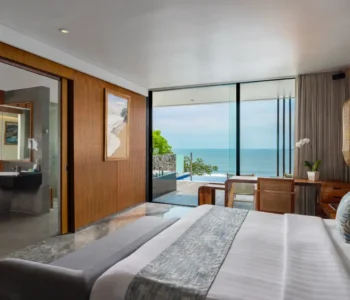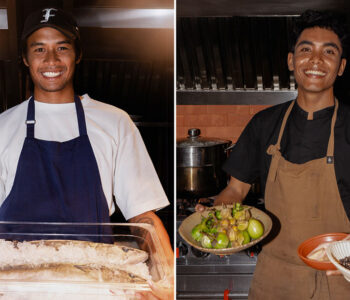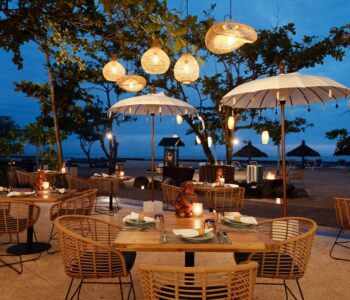Around 9.8 billion plastic bags are used in Indonesia yearly, and 95% of them end up being discarded after only single use. Bali itself generates 1.6 million tons of waste within the same period, in which 20% of this is plastic waste.
With its palm-lined coastlines, verdant valleys and charming culture, Bali is the most popular holiday destination in Indonesia. Welcoming 16 million tourists each year, without a doubt the beaches are what beckon sun-seekers to the island, those seeking a taste of tropical life. However, high tourism has its price to pay too. The plastic waste problem became so severe that Bali had to ban single use plastic bags in December 2018, pushing the goal to reduce the plastic marine debris by 70% in 2025.
I Want to Smell the Perfume
A social enterprise based in Jakarta but working across the country offers a fresh approach to the single-use plastic problem, whilst simultaneously offering women’s empowerment. Using a training method called the ‘spider web system’, they empower disadvantaged women with brand new skills (crochet and basket making) which helps provide them with an income as they create solutions to plastic waste.
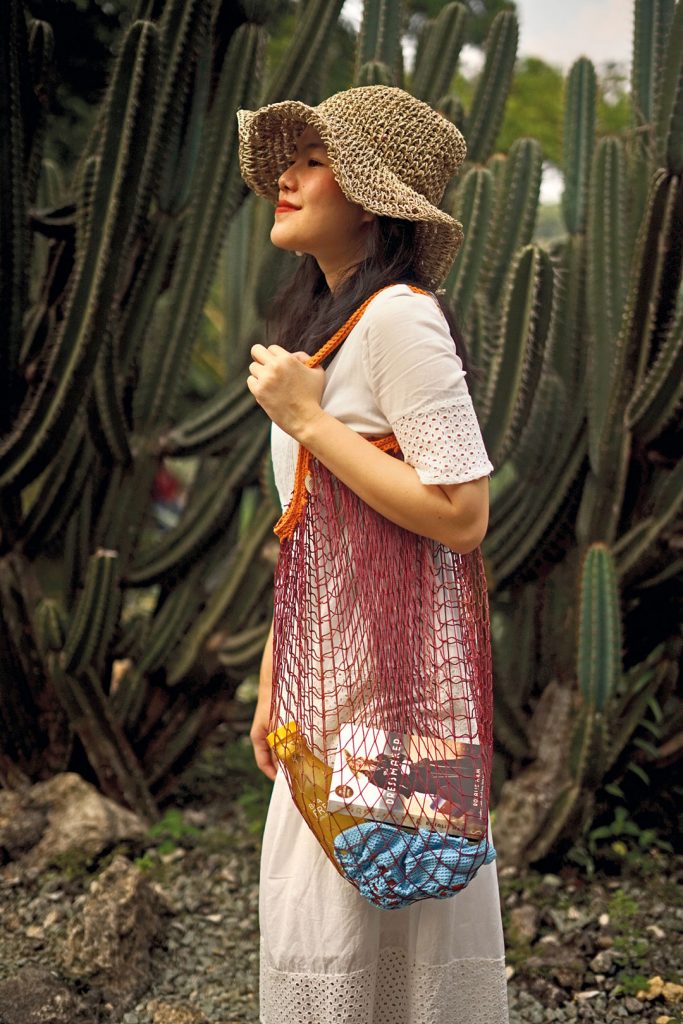
The brand name, I Want to Smell the Perfume, is rooted in Founder Wilma EmpalmadoDadivas’ cherished memory of when she bought her first Chanel No. 5 perfume with her own hard-earned money. Having come from a similar background to the women she now empowers, Wilma wanted to share the feeling of that very moment: in the same way a piece of chocolate symbolised post-war liberation for a young Audrey Hepburn, the smell of perfume meant freedom and gratitude for Wilma.
From humble beginnings, I Want to Smell the Perfume now works with more than 150 active women across 5 areas in Indonesia: DKI Jakarta, Bogor, Bekasi, Bitung and Manado.
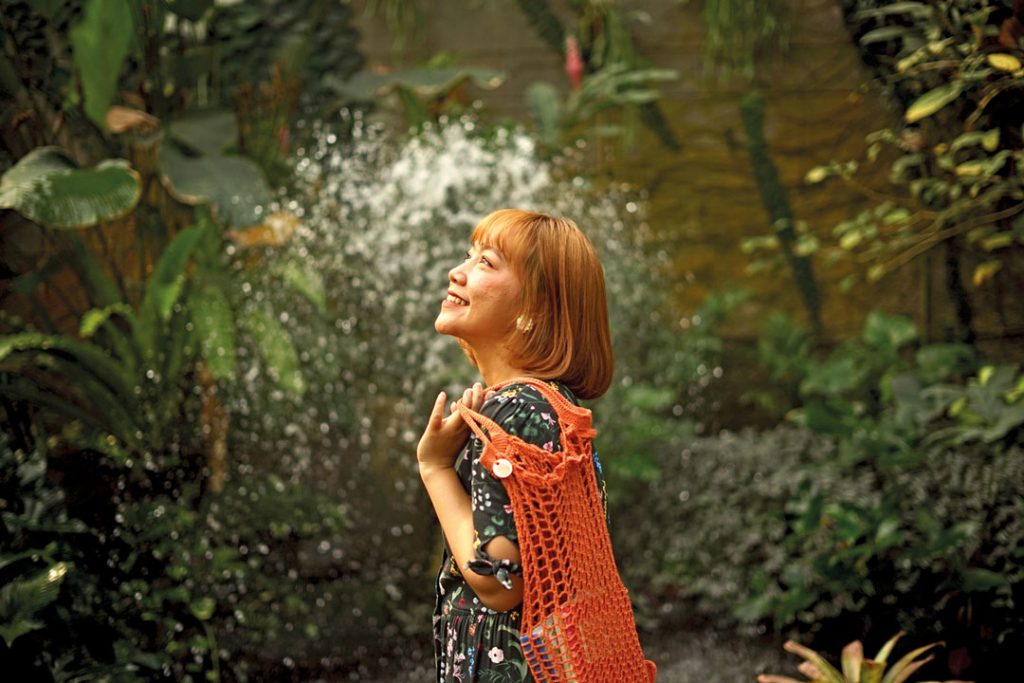
Their first public appearance was at The Local Market (a curated market for beautiful and purposeful goods, all handmade in Indonesia) Fall Edition 2017. Now their products can be found in numerous places, in Bali you can find them at Canaan Bali and Asha Curated Boutique & Gallery in The ApurvaKempinski Bali, or online through Zero Waste Indonesia (zerowaste.id).
No Plastic Experience
I Want to Smell the Perfume design and make versatile, multipurpose baskets. Developed since October 2017, they now offer several main articles including the ‘No Plastic Experience’ series. This consists of four types of baskets best used for grocery shopping and carrying fresh goods and produce. These help to reduce the use of plastic bags when shopping for things like fruits and vegetables; the baskets are even cleverly equipped with a ribbon tape for the barcode stickers use when weighing the goods in markets.
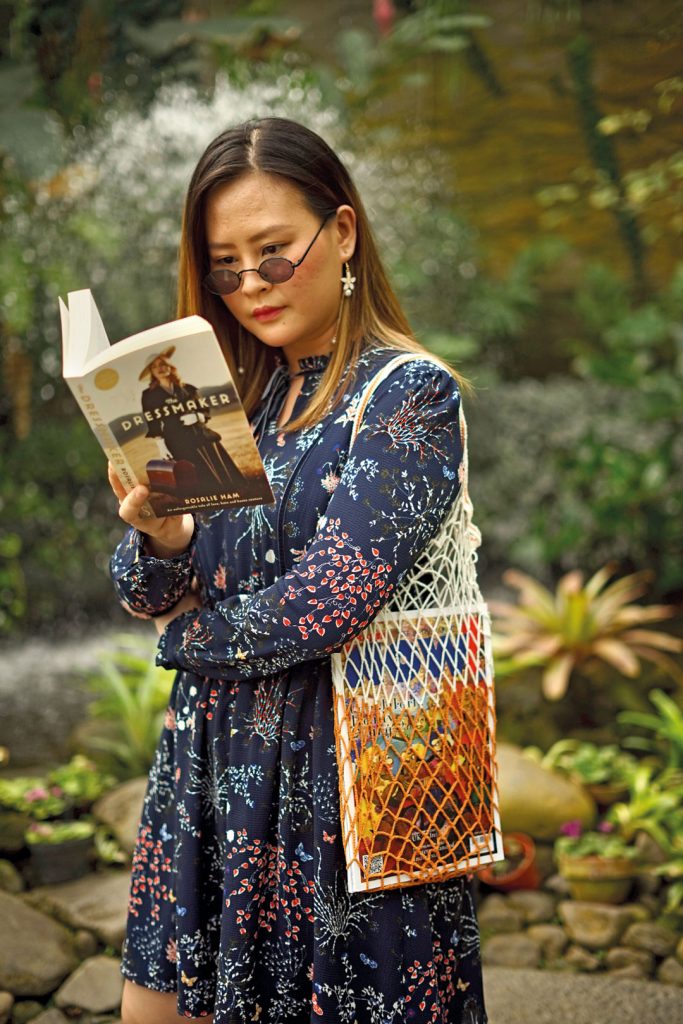
This year, the brand will start to use locally sourced and recycled cotton as their main material, in line with the consumers’ growing concern for a sustainable lifestyle, especially in major cities. Recycled cotton is usually made from scraps (leftover fabric from garment cutting process), which are typically destined for the landfill. Using this type of cotton helps to reduce micro-plastics that result from using synthetic yarn and uses less water and energy associated with newly made cotton.
Reborn Damaged Fishing Nets
Their Anthea bags are made of repurposed discarded fishing nets, which are donated by PT SamuderaMandiriSentosa (a sustainable tuna cannery company in Bintung, Sulawesi). Discarded fishing nets are in fact one of the most damaging debris in the ocean. The bag can be used as a daily bag or a grocery bag and can hold up to 20kg.
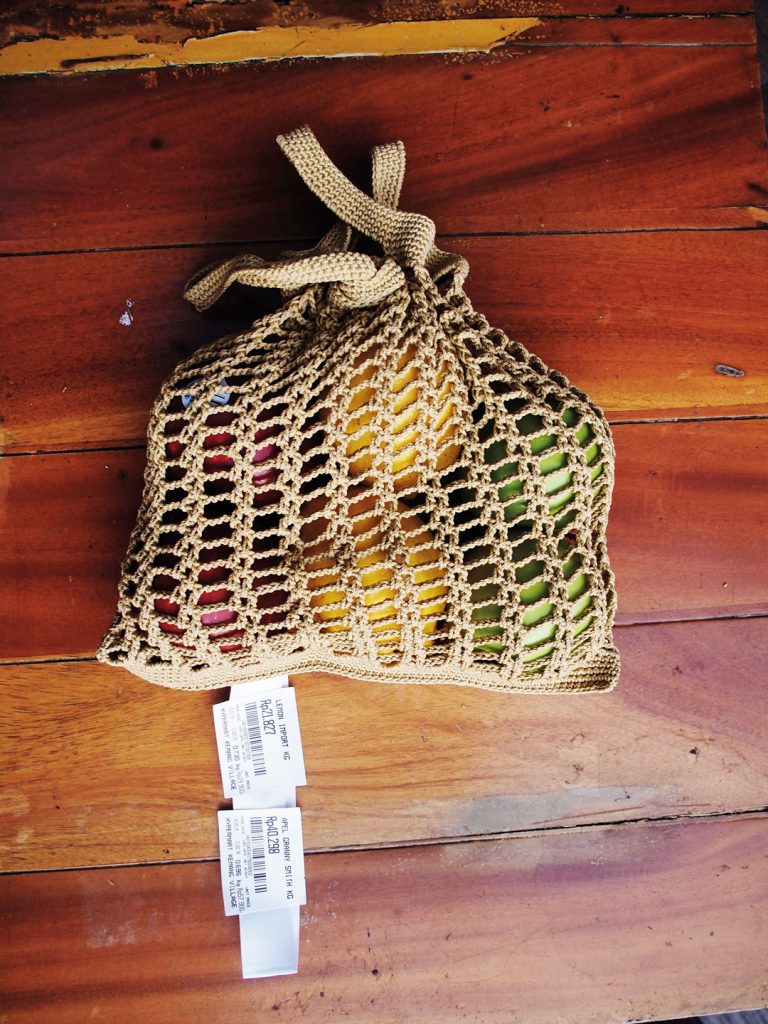
What Makes I Want to Smell the Perfume Baskets and Bags Unique?
According to INAPLAS (Association of Indonesian Alkene, Aromatics and Plastic Industry), average single use plastic consumption in Indonesia is 21-22 kg per individual yearly.
If you use in average 7-8 single use plastic bags per week, it means you’ll accumulate 336-384 plastic bags per year. They will end up either in the landfills or rivers, and eventually being washed up to the ocean.
I Want to Smell the Perfume’s baskets tackle plastic waste issue and at the same time give job opportunities to women in need.


